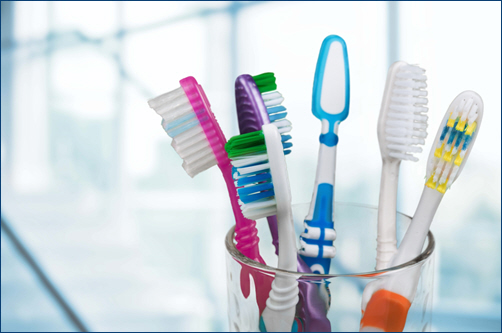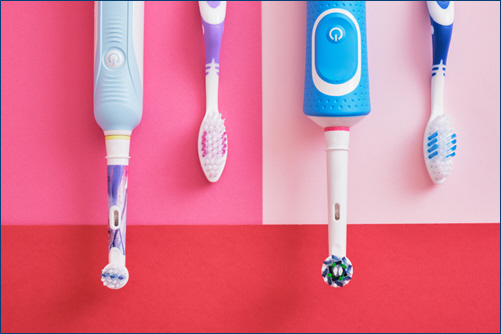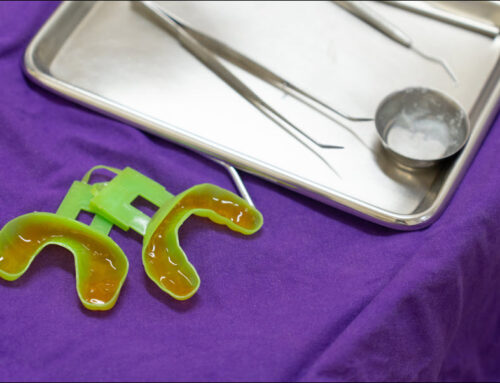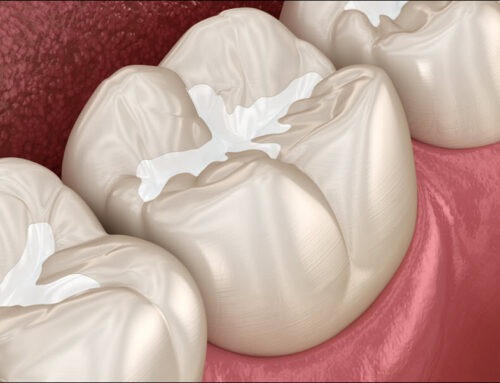Choosing the right toothbrush is crucial for maintaining excellent oral hygiene. With the options of mechanical (electric) and manual toothbrushes available, understanding the differences between them can help you make an informed decision. Here’s a comprehensive comparison to guide you in choosing the best toothbrush for your oral health.
Mechanical Toothbrushes
 Efficiency and Effectiveness: Mechanical toothbrushes, often known as electric toothbrushes, are designed to provide a more thorough cleaning compared to manual brushes. The oscillating or rotating toothbrush heads can remove plaque and food particles more effectively due to their rapid motion. Studies have shown that electric toothbrushes can be more effective in reducing plaque and gingivitis compared to manual brushes.
Efficiency and Effectiveness: Mechanical toothbrushes, often known as electric toothbrushes, are designed to provide a more thorough cleaning compared to manual brushes. The oscillating or rotating toothbrush heads can remove plaque and food particles more effectively due to their rapid motion. Studies have shown that electric toothbrushes can be more effective in reducing plaque and gingivitis compared to manual brushes.- Ease of Use: Electric toothbrushes are particularly beneficial for individuals with limited manual dexterity, such as those with arthritis. The automatic brushing motion requires less effort from the user, making it easier to maintain proper brushing techniques and ensuring a more consistent brushing routine.
- Advanced Features: Many electric toothbrushes come with additional features such as timers, pressure sensors, and multiple brushing modes. These features can help improve brushing habits by ensuring that you brush for the recommended two minutes and apply the right amount of pressure.
Manual Toothbrushes
- Cost-Effectiveness: Manual toothbrushes are generally more affordable than their electric counterparts. They don’t require batteries or charging and are widely available at most stores. This makes them a cost-effective option for maintaining oral hygiene, especially if you are on a tight budget.
- Control and Precision: Some people prefer manual toothbrushes because they offer greater control over brushing pressure and technique. Manual brushes allow you to customize your brushing style and focus on specific areas of your mouth, which can be advantageous if you have particular dental needs.
- Portability and Convenience: Manual toothbrushes are compact and easy to carry, making them ideal for travel. They don’t require any power source, so you can use them anywhere without worrying about charging or battery replacement.
Choosing the Right Toothbrush
- Personal Preference: Ultimately, the choice between a mechanical and manual toothbrush may come down to personal preference and comfort. Both types can be effective if used correctly, so consider which option you find more comfortable and convenient for your daily routine.
- Consulting Your Dentist: Your dentist can provide personalized recommendations based on your oral health needs. If you have specific dental concerns or conditions, such as gum disease or orthodontic appliances, your dentist can advise you on the best toothbrush option for your situation.
Both mechanical and manual toothbrushes offer unique benefits for maintaining oral health. Electric toothbrushes provide enhanced efficiency and convenience, while manual brushes offer cost-effectiveness and precision. By considering your personal preferences and dental needs, and consulting with your dentist, you can select the toothbrush that best supports your oral hygiene routine and contributes to a healthier smile.



